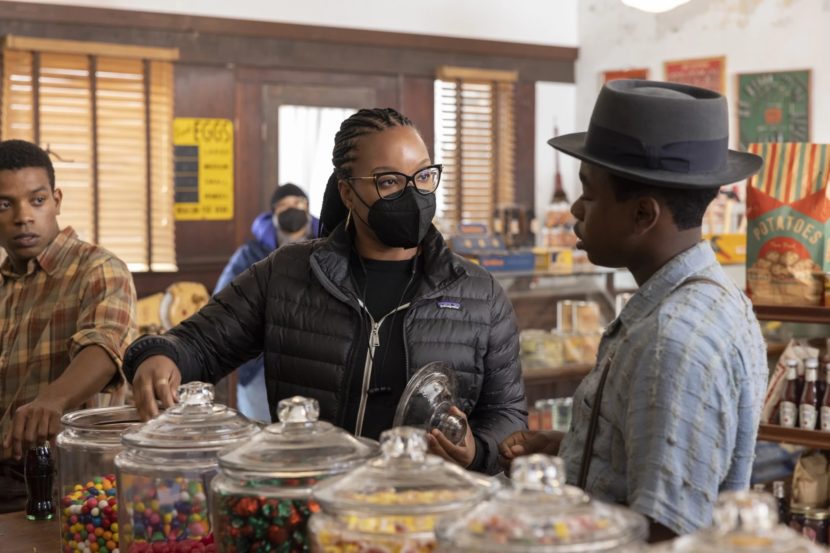
The director of the recently-released movie “Till” studied film at the University of Alaska Fairbanks.
Chinonye Chukwu produced her first feature film in 2012 when she was a student at the University of Alaska Fairbanks. Her professor, Maya Salganek, said she came to UAF after finishing college elsewhere, to pursue writing.
“And (she) had taken some classes and ended up on a film set with me,” Salganek said.
Salganek’s students were making the film “Chronictown” in the winter of 2006.
“It was a tough shoot, and it was being outdoors all the time,” Salganek said. “And then there was sort of the, you know, it’s the boys club a lot of times in film. And I remember very clearly Chinonye and I having a real heart-to-heart at a tough moment, just saying, ‘Don’t let other people define you. Don’t let their version of you stop you from being the filmmaker you wanna be.’ And from there she decided, ‘Yeah, I don’t wanna be a screenwriter, I wanna be a filmmaker.’”
Chukwu went on to graduate school, returning to UAF in 2011 to produce the feature film “AlaskaLand” about the Nigeria to Alaska immigrant experience.
In 2019, she made “Clemency” about a prison warden dealing with executions and won the dramatic grand jury prize at the Sundance Film Festival, the first Black woman to take the top prize.
Now Chukwu has directed “Till,” about Mamie Till-Mobley and her efforts to get justice for her 14-year old son, Emmett Till, who was lynched in Mississippi in 1955.
Salganek has already seen the movie here in Fairbanks.
“There was one reporter whose review of it I read who said, ‘You need to see it, and you need to bring a teenager,’” Salganek said. “I think that was really insightful. I sat in the theater holding the hand of my own 14-year-old … and knowing how (far) we’ve come as a nation and yet how far we still have to go is very self-evident in the film.”
Speaking in an interview with National Public Radio’s Tonya Mosley this week, Chukwu described how her choices as a director for the film focused on justice, rather than the crime.
“A key was to show him in a humanizing way through Mamie’s emotional point of view, as opposed to the camera taking on a voyeuristic lens and objectifying him,” Chukwu said. “And so that’s why when Mamie’s looking at Emmett’s body in the funeral home, his body is obstructed and we’re just preserving the private, intimate moment that Mami is having in silence with her child. And then when we do start to see parts of his body, it’s seeing Mamie’s loving embrace of him.”
Salganek worked with Goldstream Cinema to hold a question and answer session after the film’s regular 3 p.m. showing on Sunday. She invited guests from the NAACP to talk about the way Emmett Till’s killing and his mother’s quest for justice framed the civil rights movement.
“We’ll be able to watch the film together in solidarity and in community,” she said. “It’s a tear-jerker, so being able to watch it with people is a powerful effect.”



